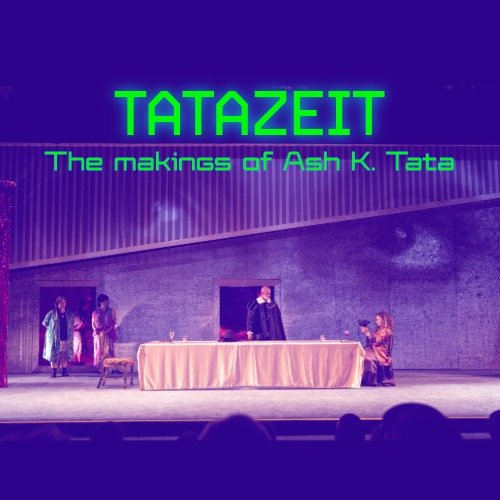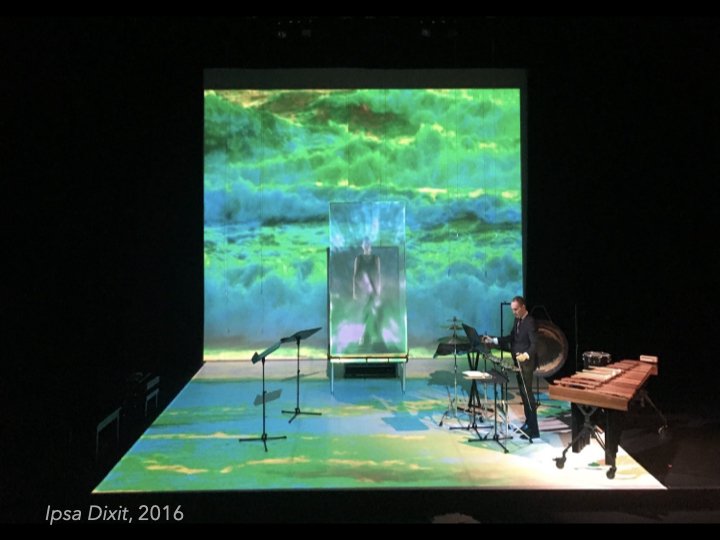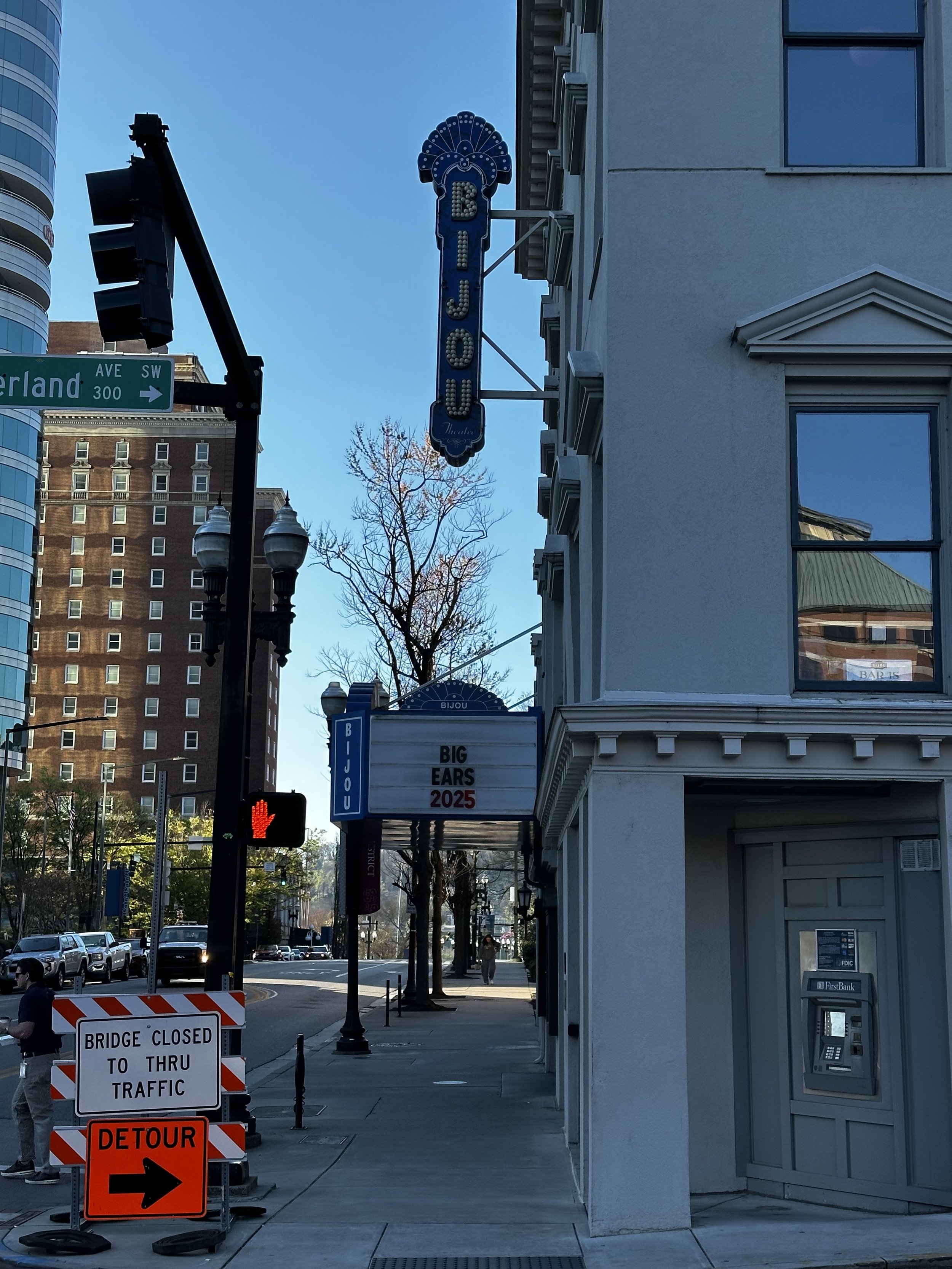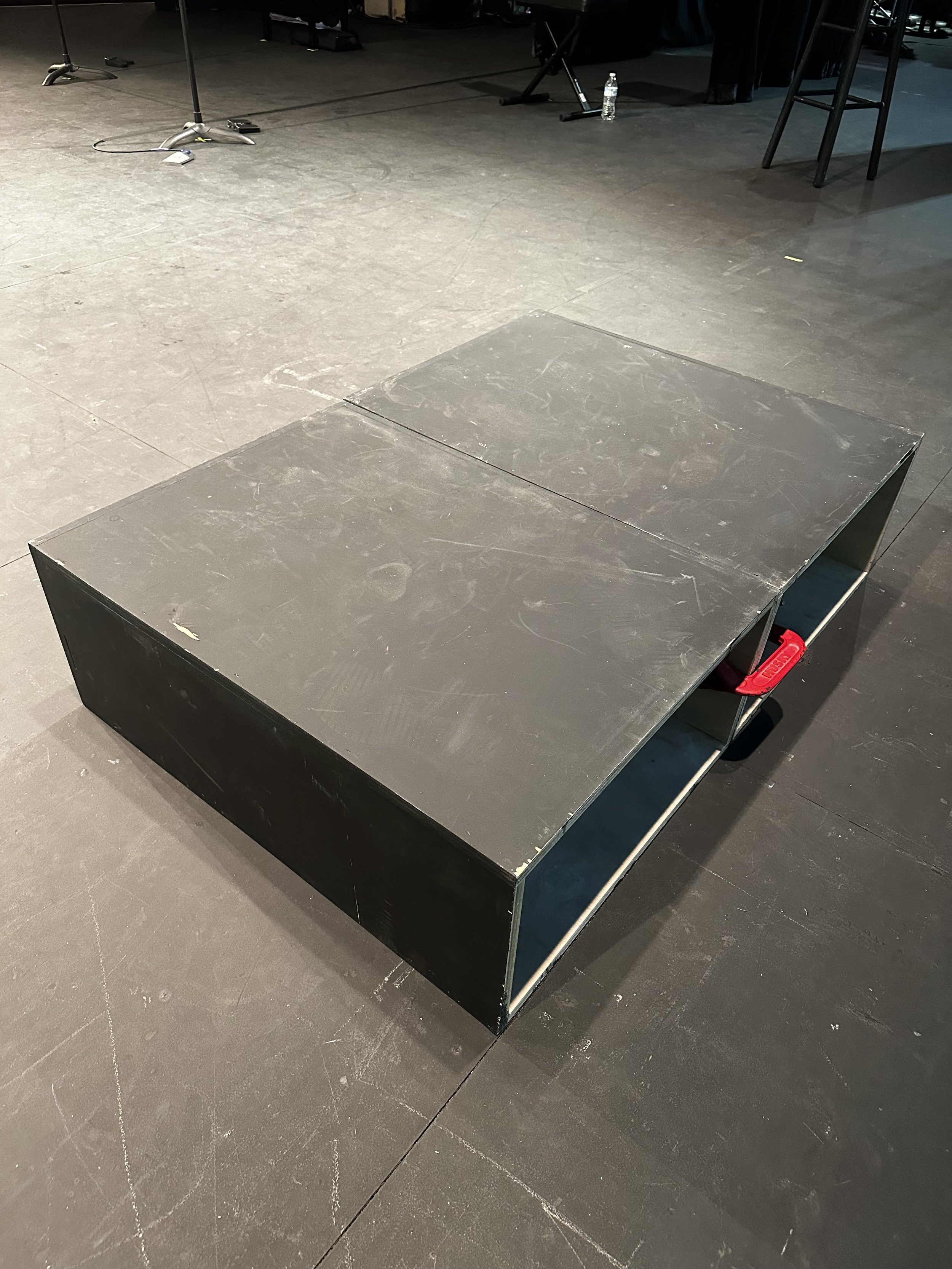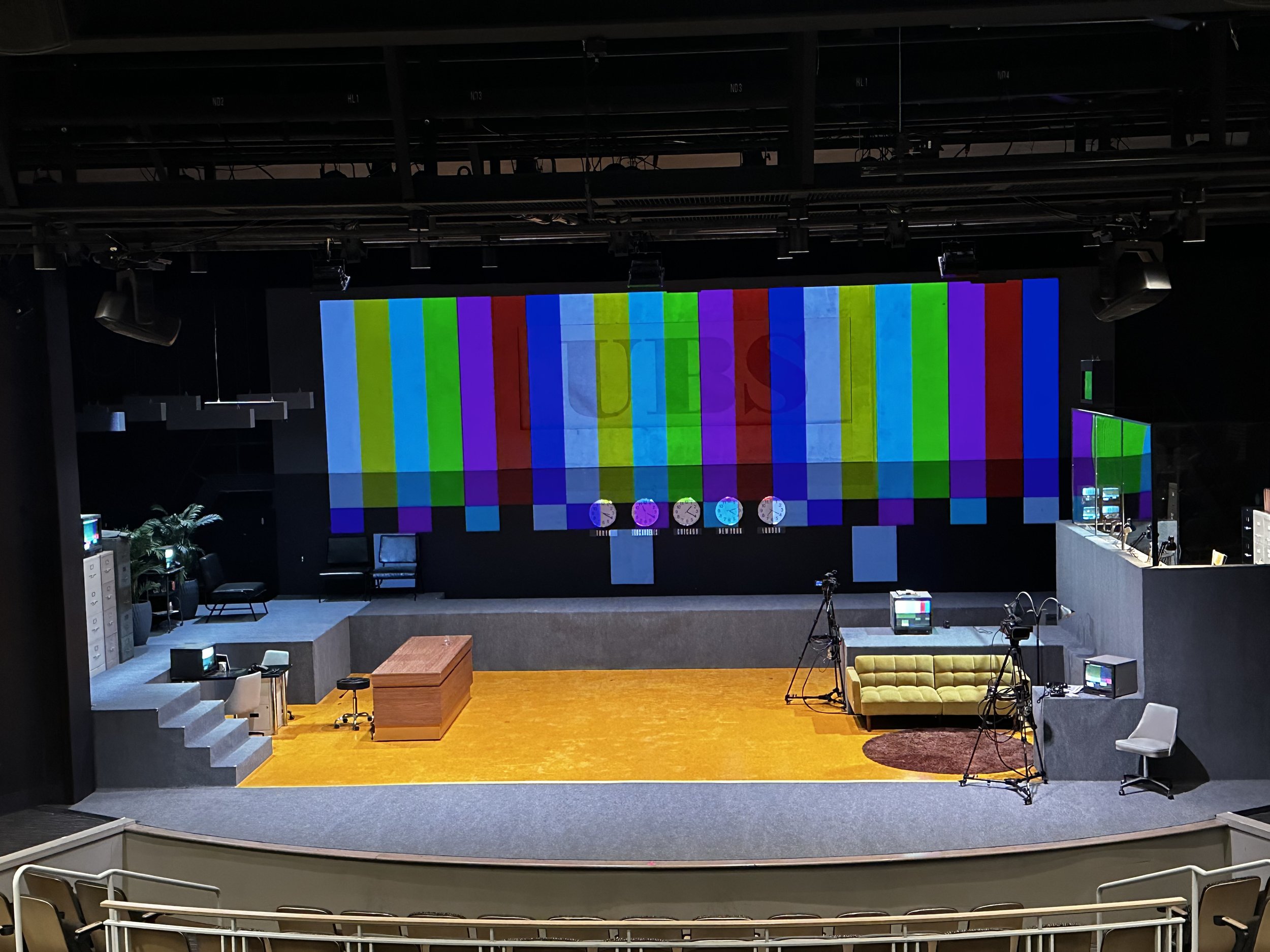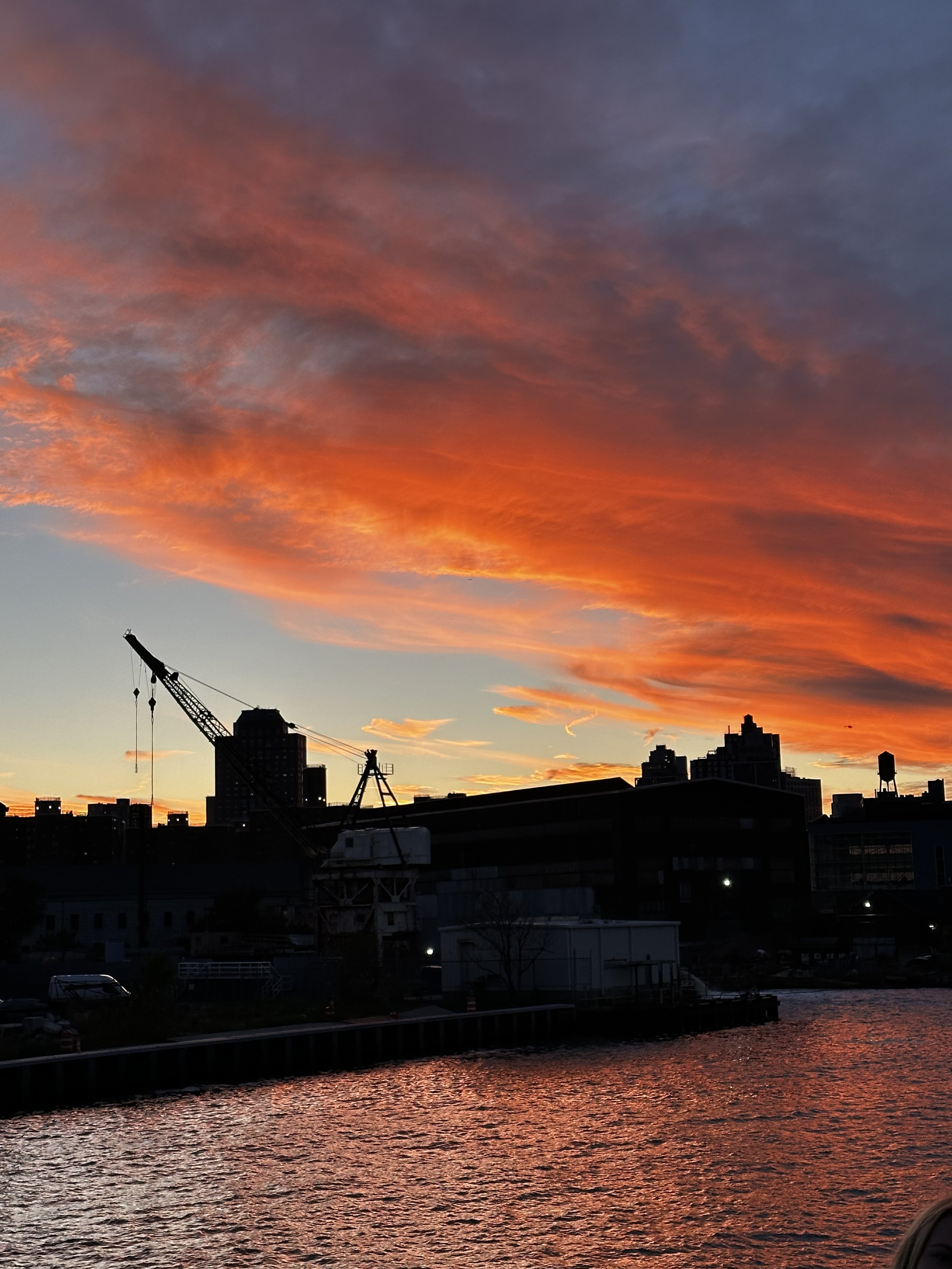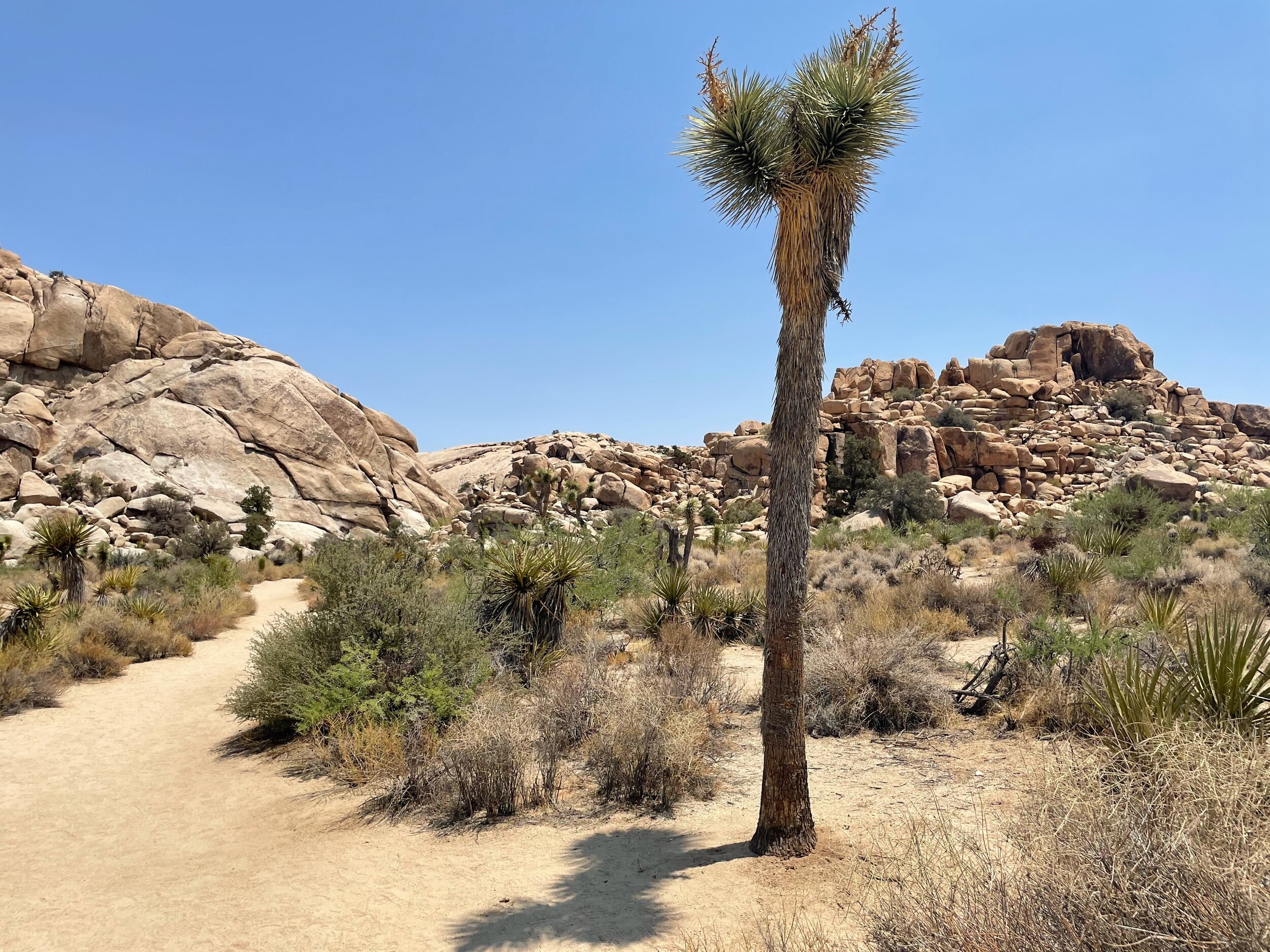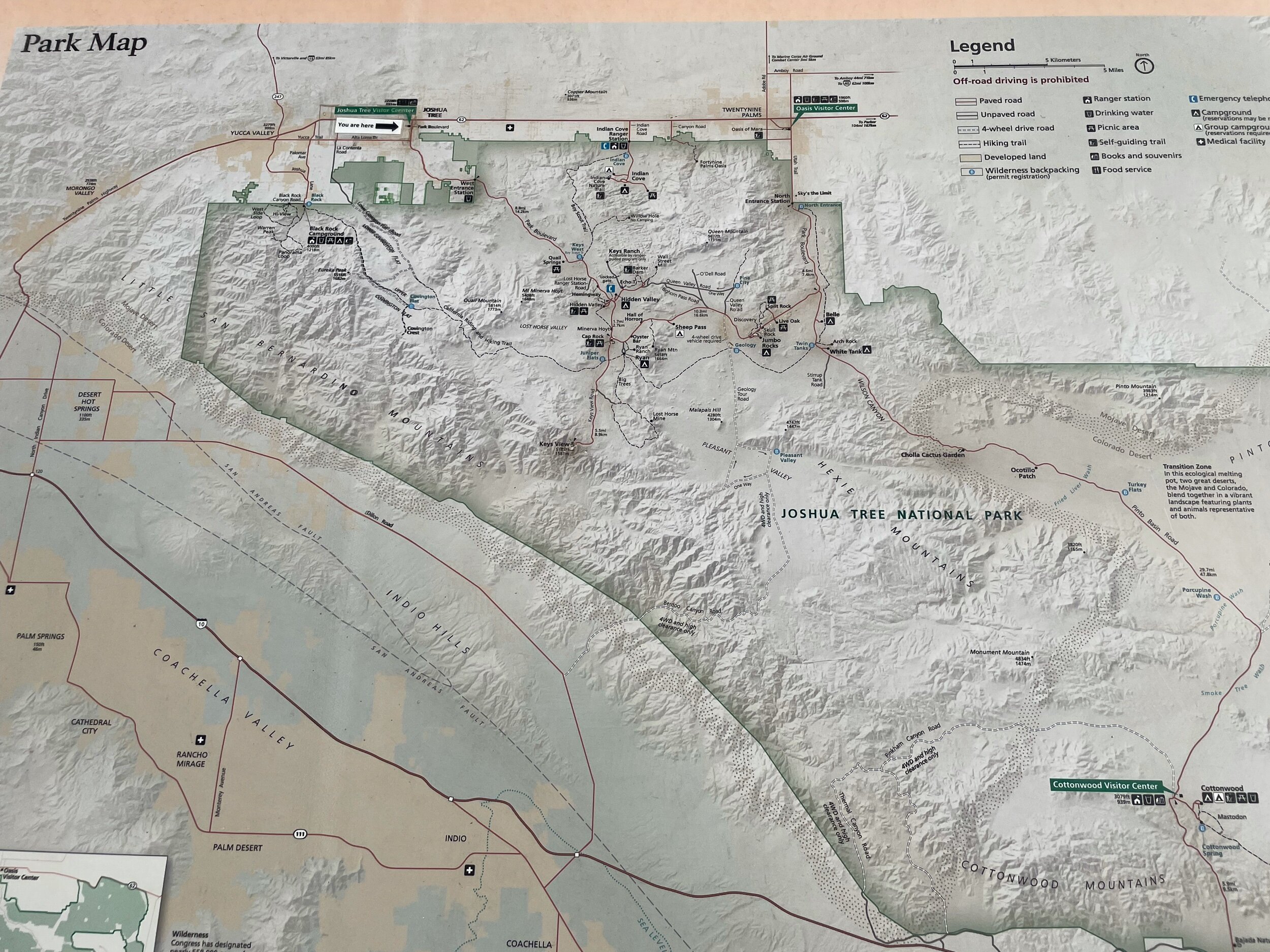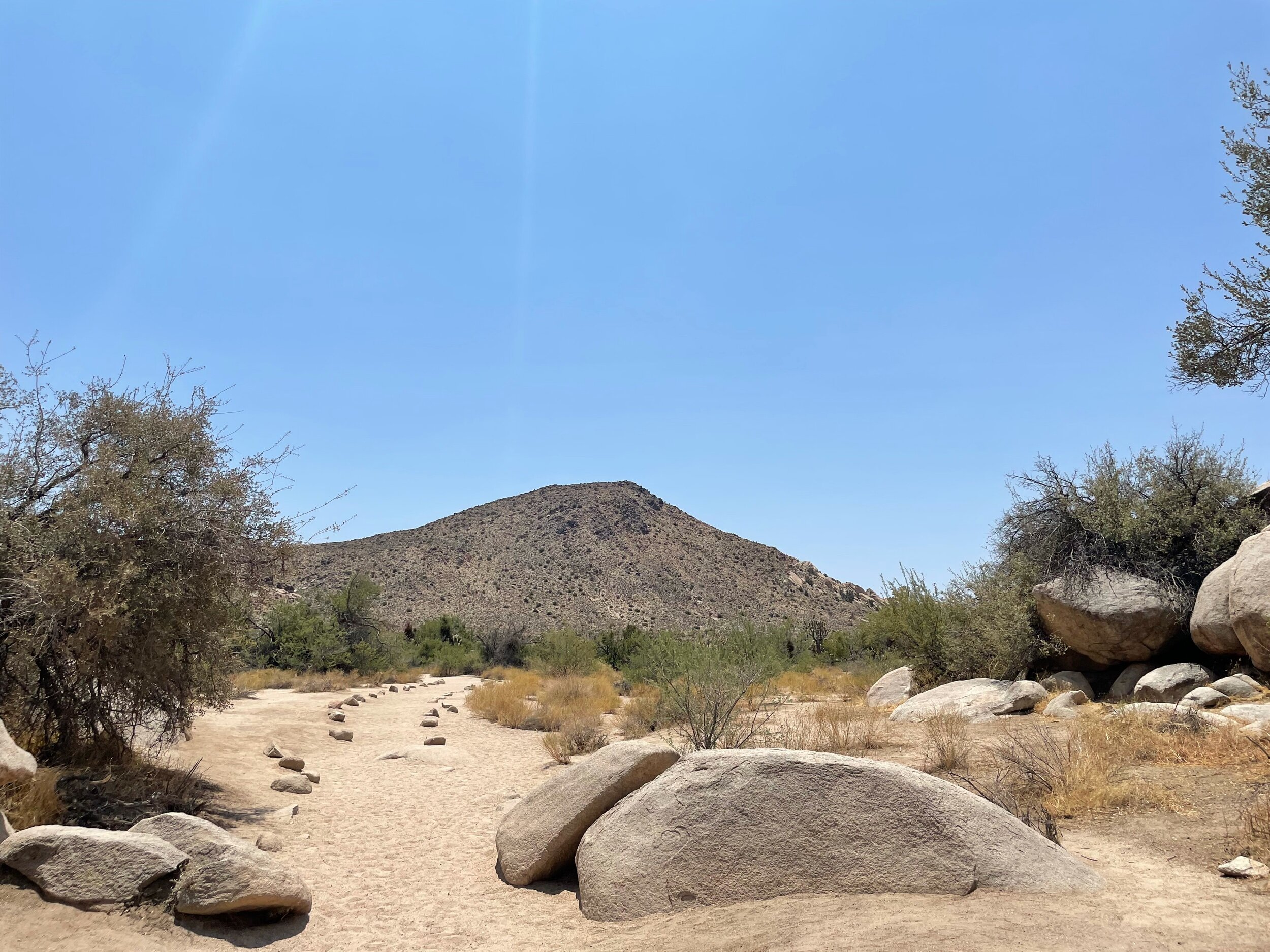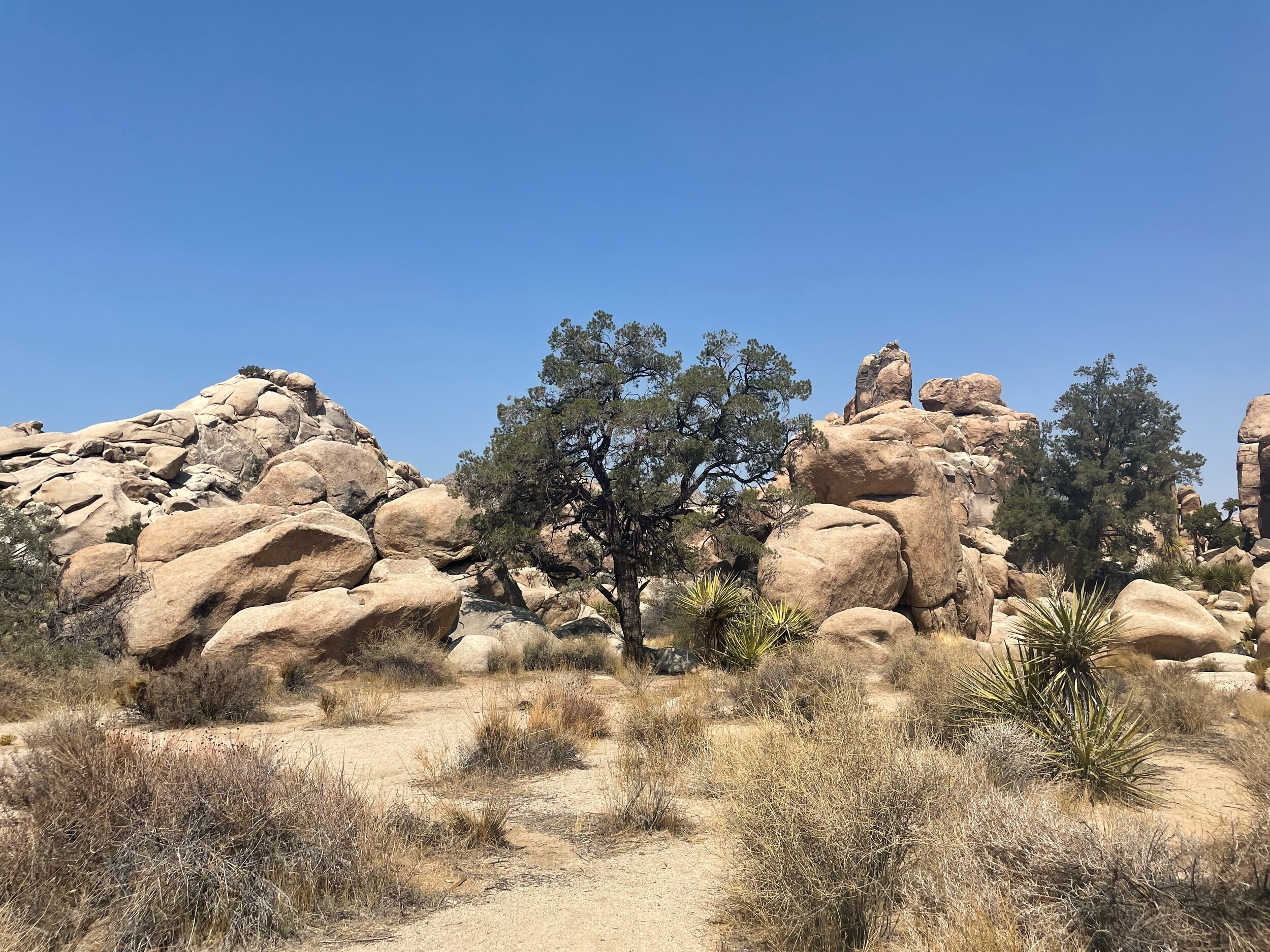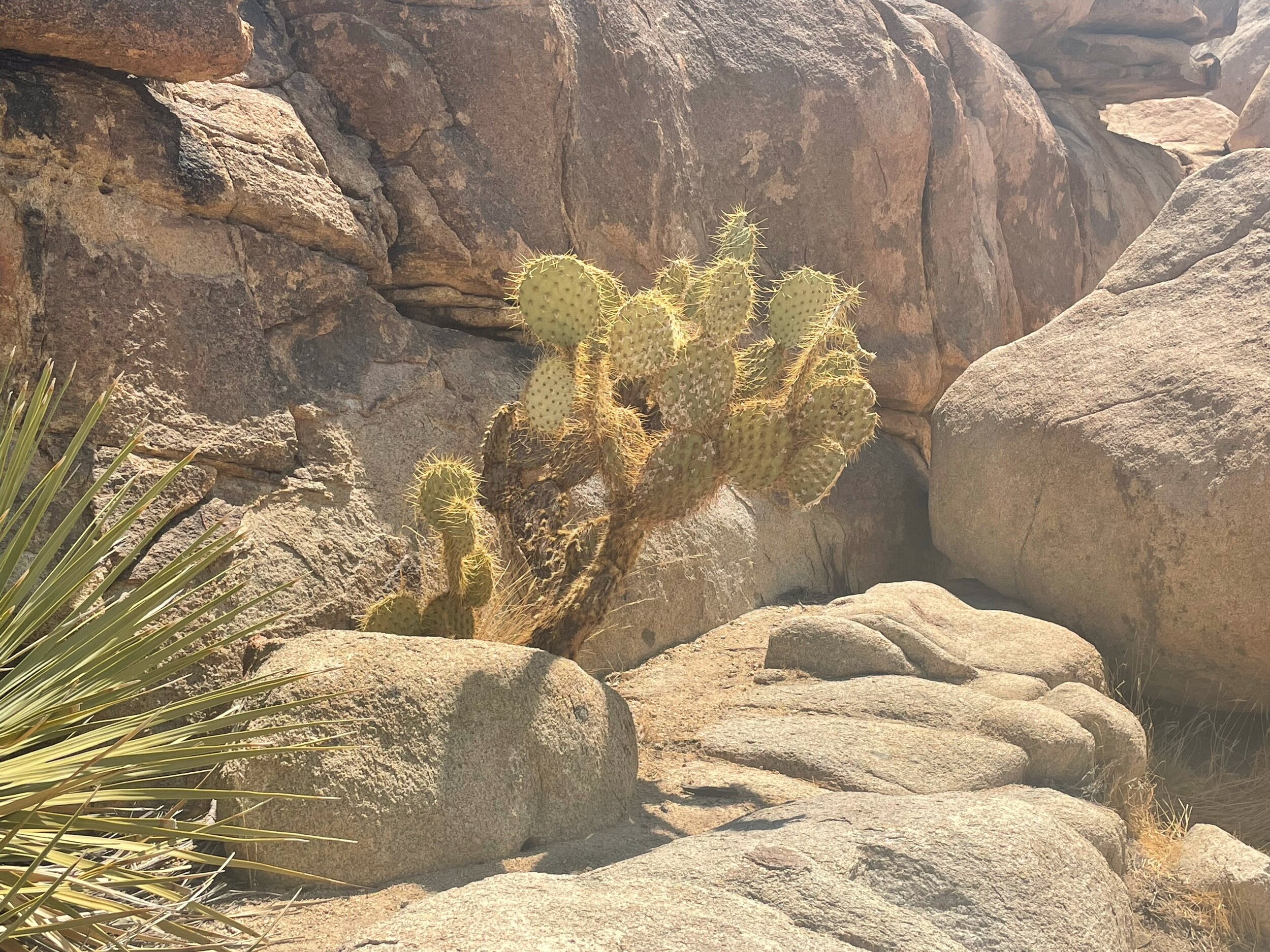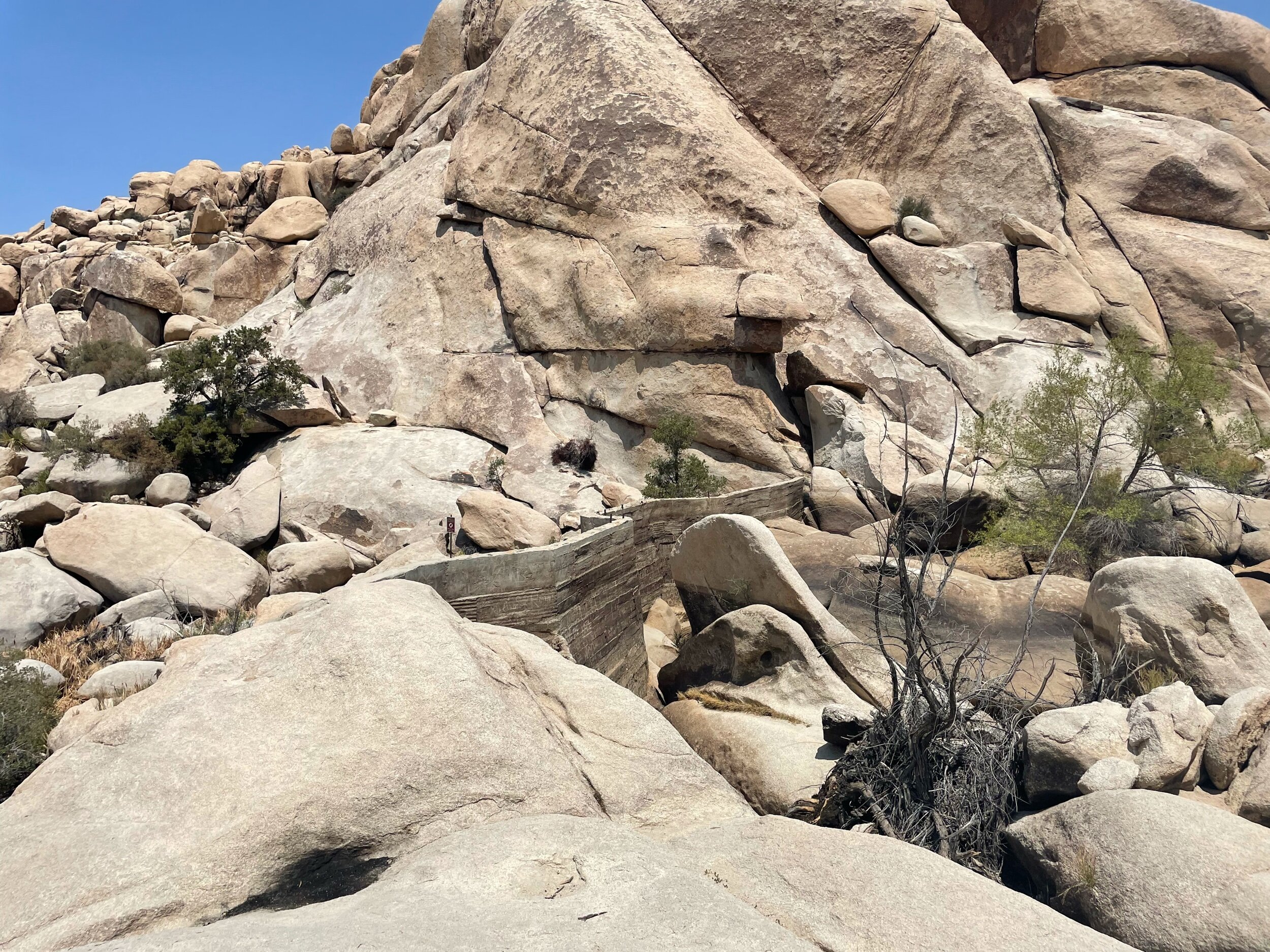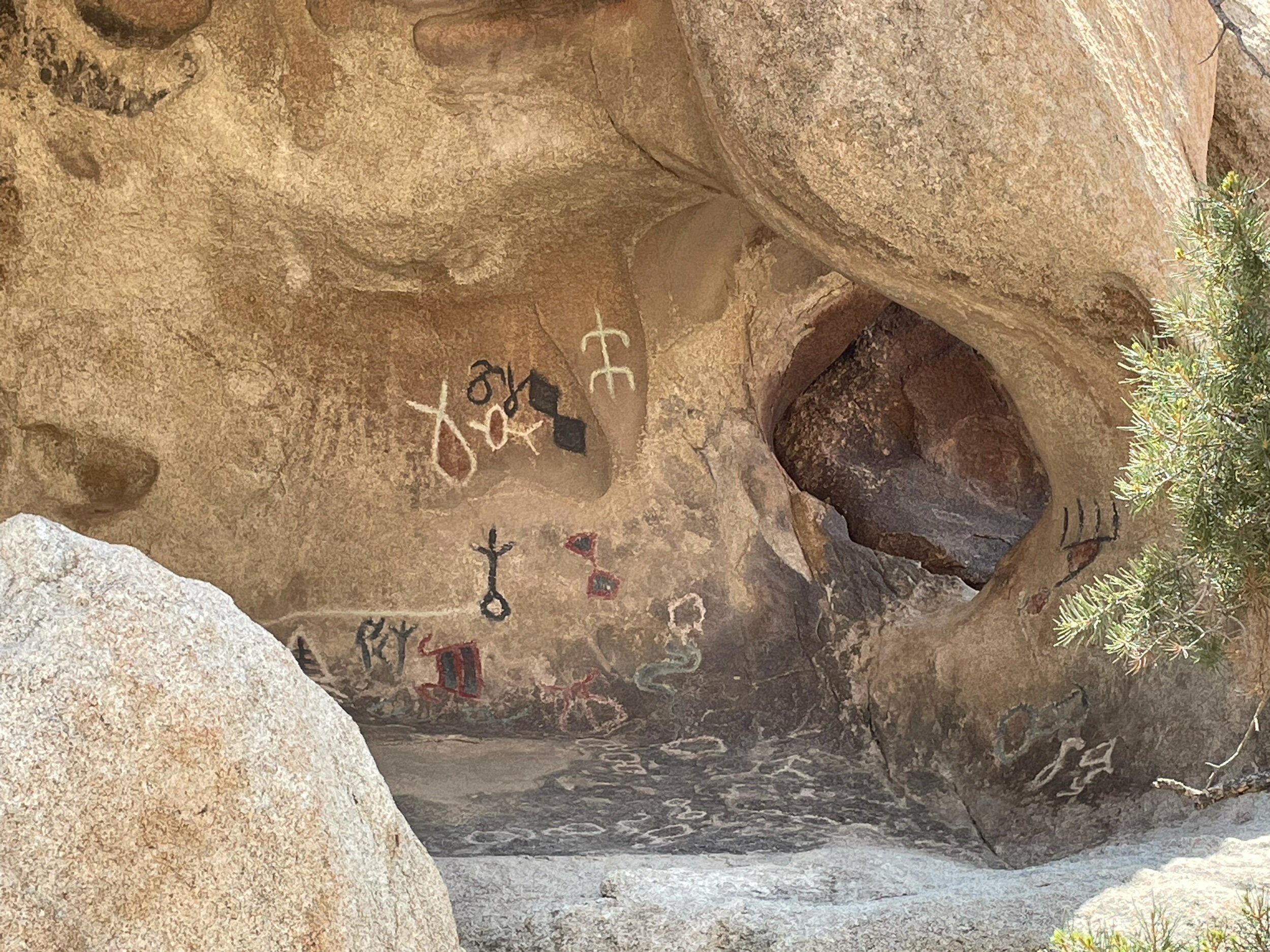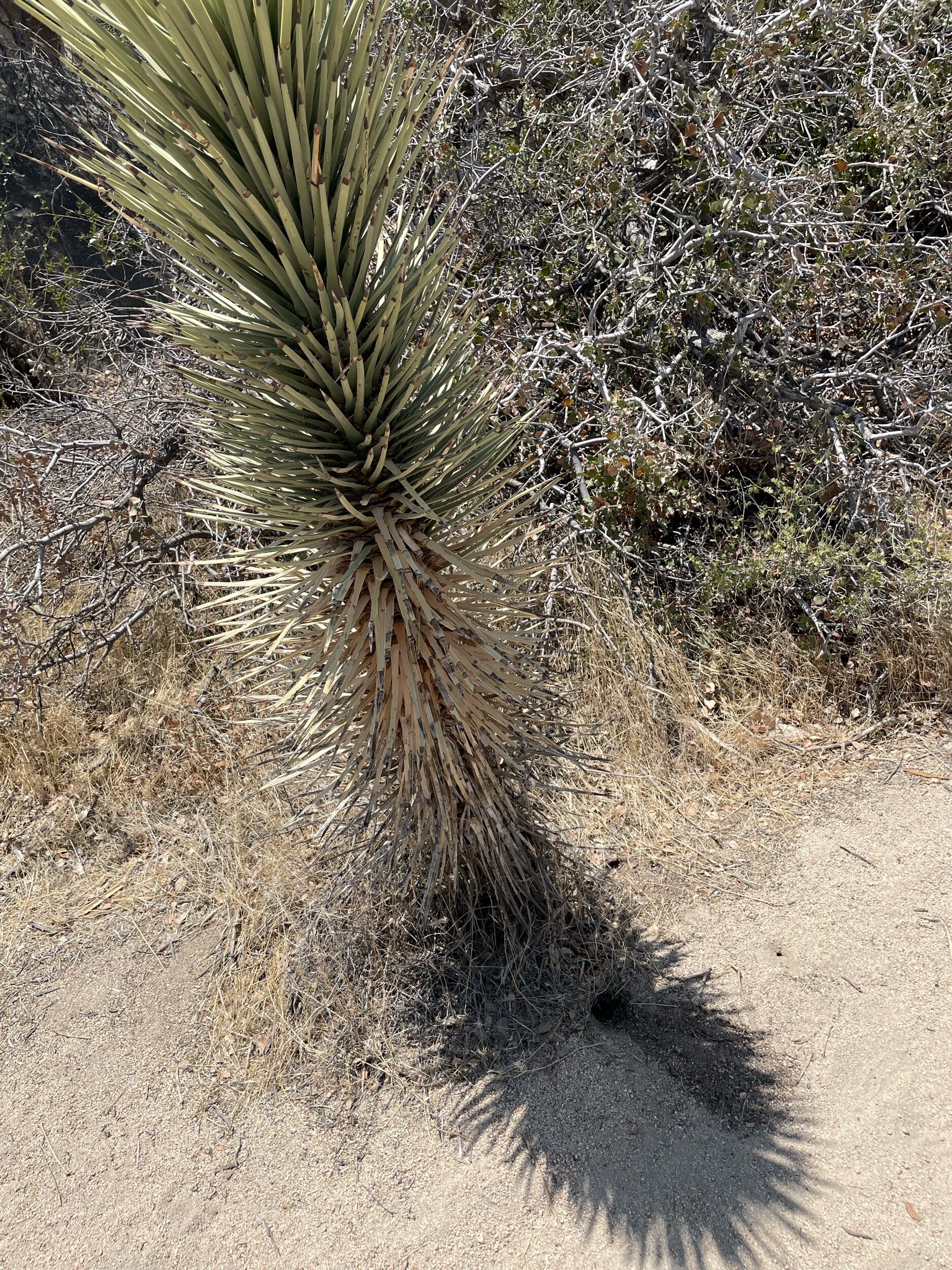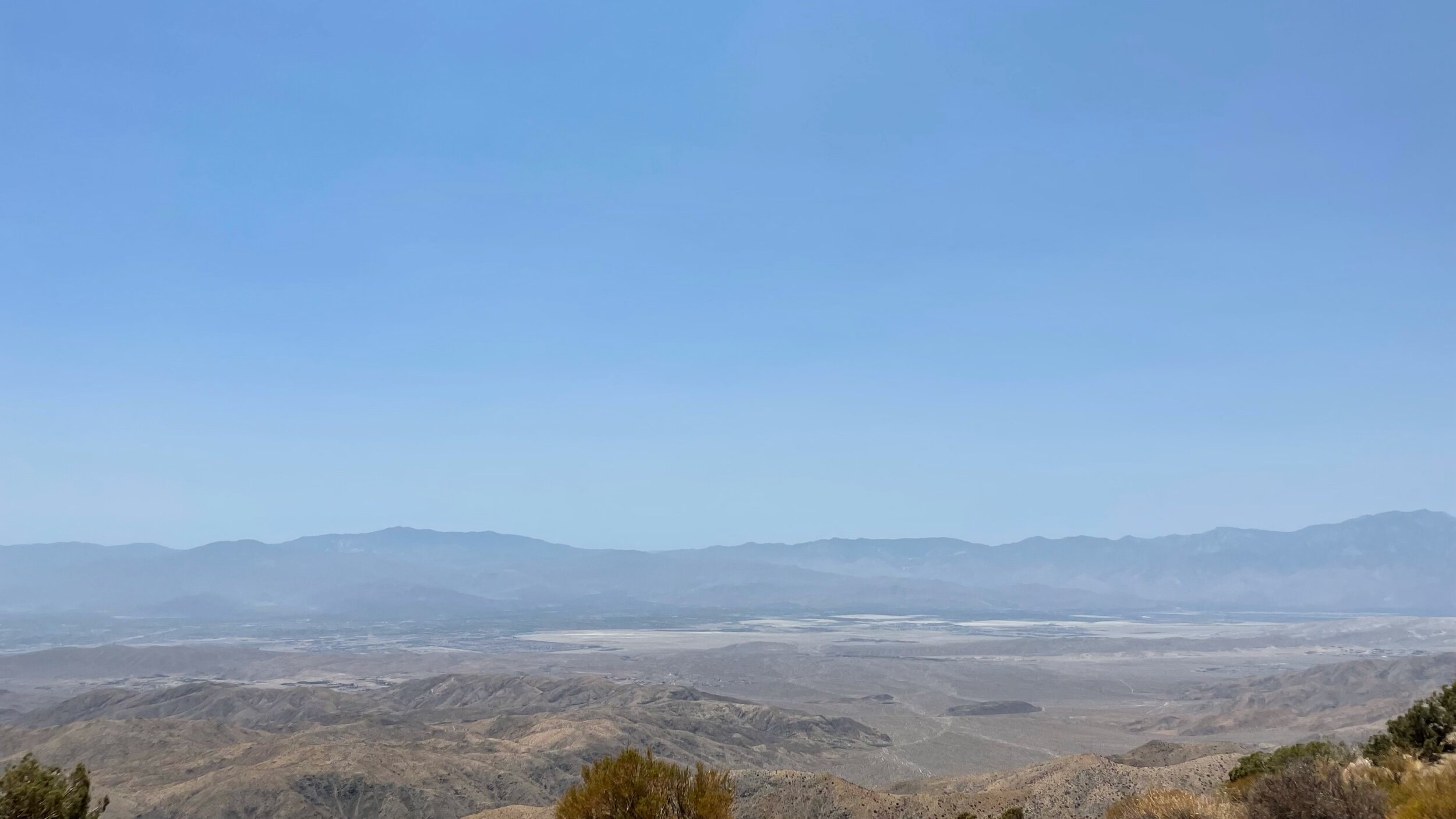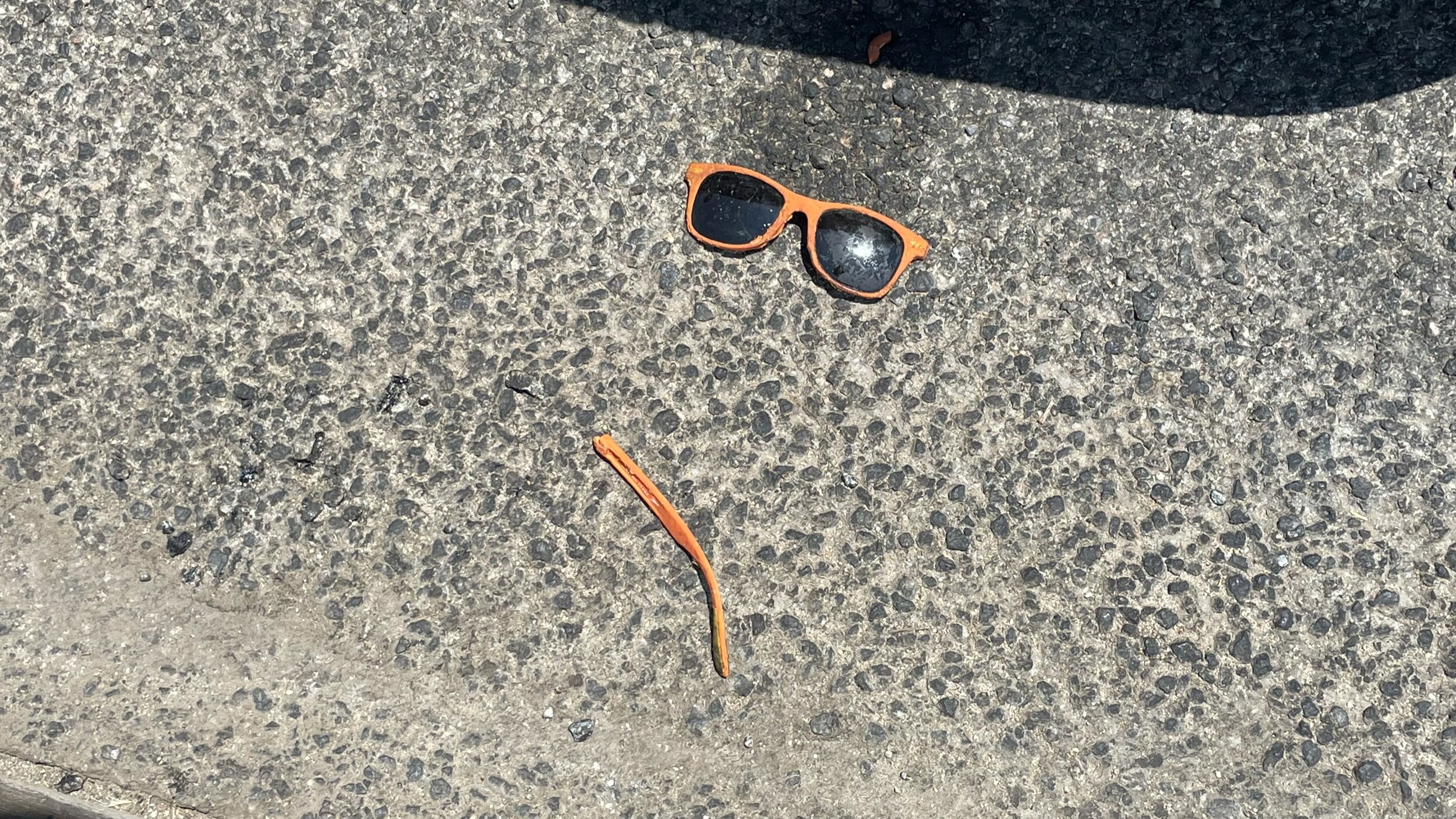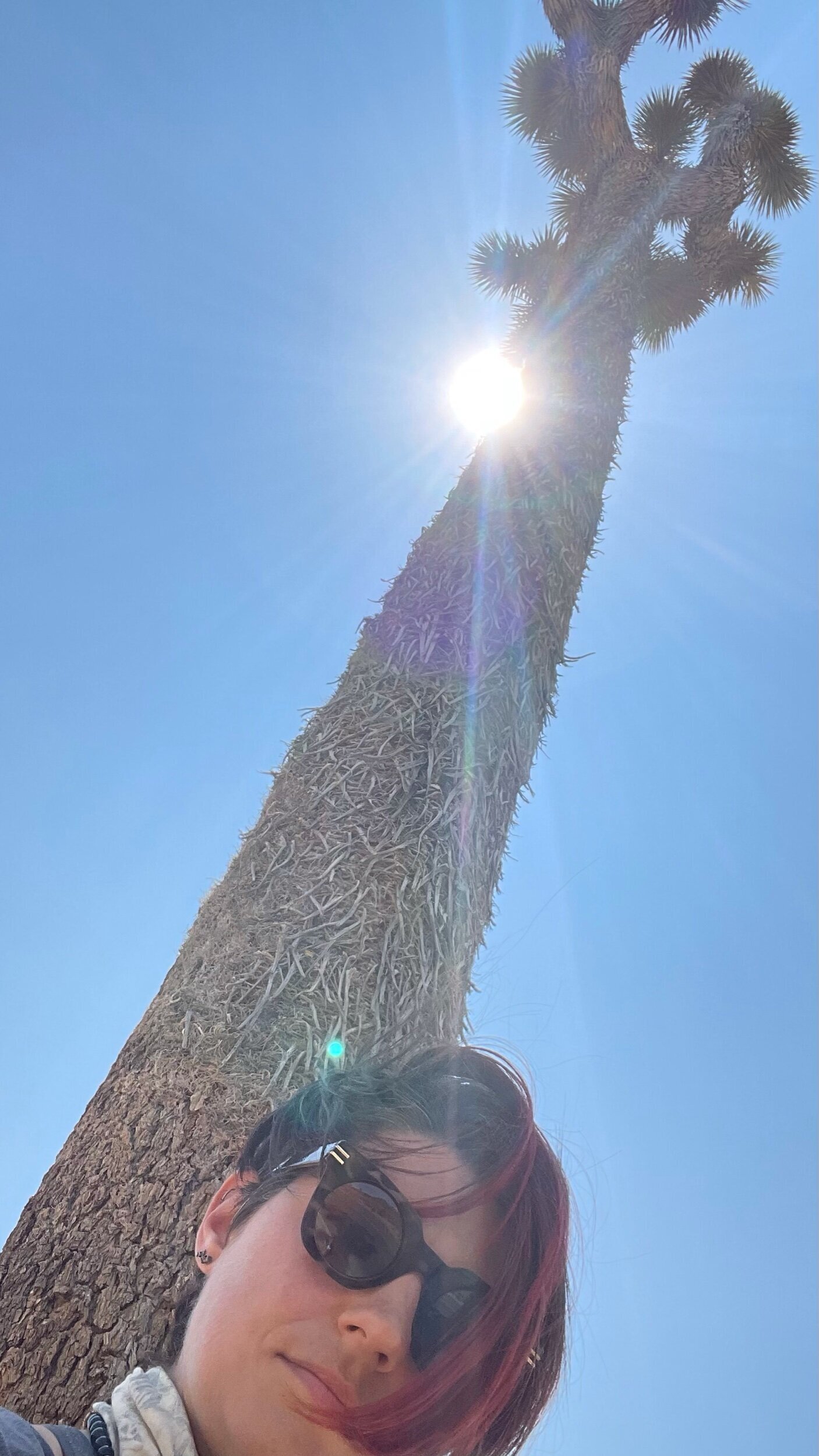Hollow House at Bushwick Starr
Theater Kitten, Consider this your ticket to hop on early for a journey from reading to full production. Plans are underway for a premiere in the not-too-distant future. We’ll be tripping through all sorts of territory with stops at opportunities to participate in theater and the community we choose to make and what we choose to do with it.
Artist warriors are the keepers of humanity.
I'm thrilled for the ride ahead and to share it with you.
See you Sunday.
In making,
Tata
TataZeit - Spring 2025
Ipsa Dixit
Big Ears Festival
THURSDAY ◎ 03.27.25 ◎ 19.00
The Bijou Theater
Knoxville, TN
Composer & Librettist: Kate Soper
Director: Ash K. Tata
Production Stage Manager: Aislinn Curry
Video Design: Brad Peterson
Associate Video: Andrew Garvis
Original Lighting Design: Anshuman Bhatia
Costume Design: Nina Vartanian
Performed by Ian Antonio, Erin Lesser, Josh Modney and Kate Soper of Wet Ink Ensemble
Hello from Knoxville, TN.
Just came down from the mountains where I was following a pando*-obsession of collecting National Parks cancellations for my passport. Living up to the Junior Ranger status conferred upon me a few years back.
he excuse for the ancient mountain Appalachian retreat is a return to the totally thrilling Big Ears Festival to present Kate Soper’s Ipsa Dixit.
We’re being hosted by the beautiful Bijou theater. With platforms generously donated by Dolly Parton.
This production is entering its ninth year. And still worth the revisit.
Here’s a catchy one. A reworking of Aristotle on Rhetoric:
“Listen to me! Truth is strong, stronger than deceit! In any crisis, the truth will inexorably rise! therefore, where truth fails, we have failed to speak for the truth. And this, this is rhetoric’s purpose: to give to the truth a voice!”
Social Media Policy Update
TataTime has made the decision to exit the Meta-Verse. As of January 2025 you can no longer reach me on Facebook, Insta or WhatsApp.
Despite what we’re sold to consume, there’s a whole multiverse out there. You can find me on bluesky and signal (only declassified content). See you there.
If you or your social media persona and/or avatars have been on this white rabbit’s tail and want a rabbit hole through to the Meta-Exit, I recommend Maria Ressa on the topic. Or just free yourself and get out.
Looking forward to what makings this community generates in the years ahead.
Stay true. Or as they say down the block, “Keep your head hi.”
As always in gratitude, solidarity and in making,
Ash
*pando - prefix to refer to anything of the 2019-202{ } pandemic era. eg. pando-streaming, pando-reading, pando-napping, pando-theater, pando-making
Thank you, Dolly Parton for donating these Dolly Platforms.
Thank you to the Park Rangers.
TataTober Fall 2024
View this email in your browser
NETWORK
By Lee Hall
Based on the film by
Paddy Chayefsky
Directed by
Ashley Kelly Tata
Scenic: Afsoon Pajoufar
Lighting & Video:
SeifAllah Salotto-Cristobal
Audio: Aubrey Dube
Costume: Nancy Leary
Props: David Allen Prescott
Stage Manager: Vanessa C. Hart*
Assistant Director: Joe Juknievich
SEPTEMBER 27-NOVEMBER 3
The Fall
2024
Dear Every Body,
Welcome to our fall. I just returned from the land of the Trans-cendentalists, Concord, MA, where I have been totally immersed in the making of Network.
Big thanks to the Billy Rose Theatre Division of the New York Public Library for the Performing Arts where I spent somewhere between 30-40 hours going through the Paddy Chayefsky papers. Join me in showing your library love here.
I am thrilled that this project allowed me to continue collaborations with Afsoon Pajoufar who designed a brilliant playground/gladiator arena/newsroom studio for us to play in; Vanessa C. Hart with whom I first was in a room they stage managed in February of 2020 before everyone went home and Vanessa invented how to manage the stages of Mad Forest; and Tom “no-notes” Giordano who I met in grad school and who was in my thesis production of Brecht’s Good Person of Szechwan.
This production introduced me to an incredible group of new collaborators from the Boston area: very fine actors, designers, technicians and makers who leaned in to the challenge of making this work with curiosity, excitement, seriousness and a lot of joy, despite the nature of the material. My overwrought director’s note can be found in a section at the bottom of this email. Quick reminder: “Mad as hell…” This screenplay was developed between 1974 and the film’s release in 1976. It covers such topics as presidential assassination attempts, the co-opting of social movements by corporate and entertainment interests, the sacrifice of the fourth estate on the altar of ratings, the suspicion of women in executive roles, crises in the Middle East and in New York City, and other topics that we are lucky to have moved on from 50 years since the text was initially drafted.
So while Concord, MA is a bit of a trek, if you find yourself in the Boston environs, go take a walk in the woods and then check it out. The Umbrella is creating a space that encourages and supports artists to dive into the work with a deep commitment, integrity and bravery. Really grateful to have been able to make a work there.
Some other things happening this fall are the Festival for Theatre and Democracy at the Martin E. Segal Center on October 31st which I’m curating. And Orestes by Euripides at the New School. A bit of post-democratic theater before the onslaught of winter. And also - pick up your copies of Kate Soper’s The Hunt now available on Compact Disc (and Band Camp) from New Focus Recordings. And pick up a copy of New Dramaturgies of Contemporary Opera:The Practitioners’ Perspective edited by Jingyi Zhang and out now through Routledge. Some really exciting contributors in this volume and I’m proud to be among them with a chapter that I wrote about a couple of things.
Thanks as always for reading, for being a member of the community I call home, and for all that you make in this world.
In solidarity and in making,
Ash
Left to right: Zoe Pepin, Tom Giordano, Amy Barker with Bill Motos (projected). Photo by Tim Gurczak
Network is performed by
Barlow Adamson* as Max Schumacher
Amy Barker* as Louise Schumacher/Camera A technician
Steven Barkhimer* as Frank Hackett
Jennifer Bubriski as Sheila/Production Assistant
Blythe de Oliveira Foster* as Diana Christensen
Tom Giordano* as Nelson Chaney/Floor Manager
Johnny Gordon as Director
Tim Hoover as Harry Hunter/ELA Member
Will McGarrahan* as Arthur Jensen/Continuity Announcer/Interviewer
Bill Mootos* as Howard Beale
Zoe Pepin as Camera B technician
Damon Singletary* as Jack Snowden/Warm-Up Guy
Olivia Sowell as Schlesinger/Hair/Makeup
Phil Thompson as Edward Ruddy
THURSDAY, OCTOBER 31ST
A FESTIVAL FOR
THEATRE & DEMOCRACY
@ The Martin E Segal Center
NOVEMBER 21-23
ORESTES
@ The Bank Street Theater
Network Director's note
A Note:
Setting: Int or Ext. Two Colleagues catching up.
“I’m directing Network.”
Reaction shot: confusion.
“You know, ‘I’m mad as hell, and I’m not going to take it anymore…?’”
Cut to: Recognition.
More often than not this is a scene that has played out during these months working on this staged adaptation of Paddy Chayefsky’s seminal, 1976 film Network. “I’m mad as hell…” is a line I cannot remember not knowing. Like “To be or not to be” I don’t remember the first time I heard it or even the first time I quoted it in a self-conscious meta-theatrical way that allowed an outlet for some seed of truth. As with “To be or not to be” I now have a knowledge of what it is like to insist upon finding a way to make a cultural artifact into an extemporaneous utterance by a character who is doing their best to articulate something that has yet to be described. As in both of these cases it is impossible to make Network without dealing with the reality that we are making the work at a time when the words have been performed before. Nearly 50 years after Howard Beale stood rain-soaked in a news studio screaming at the glass lens of a camera “I’m mad as hell and I’m not going to take this anymore” (Peter Finch, famously, never quite got the line as written) we are living in a post-Network landscape. My thoughts on Howard Beale had been that he was one of any number of American, usually male, icons who raged against a system, speaking up for the “little man or woman” in the face of bureaucratic and anonymous serialism and dehumanization. His cry has an echo of the siren call that sounded through the mid-20th century in a chorus of anti-war, Black Power, women’s liberation, gay rights movements. An attempt to shatter the teflon-shellacked, cookie-cutter society that stoically ignores the terror of its own creation. Or, as Chayefsky writes in his notes “television is not up to tell the truth, but only to preserve the illusion of the status quo.” Working on this material in the fall of 2024 I and the company of creators have had to face the fact that we are living in a world full of Howard Beales. Being “Mad as hell” doesn’t feel like a revolutionary act. It has become the status quo. Not that there aren’t things to be mad about, but working on this piece feels like a reflection on a less quoted Beale line: “First you’ve got to get mad, then we’ll figure out what to do with it.” The madness in this work is not only anger, but the madness that comes from a lust for power and money won by viewership and ratings. Howard Beale lights a fuse giving permission for every character to follow their pursuit of madness. It fuels Diana Christiansen, a TV-molded station executive who Chayefsky originally constructed as a man. Gradually through his notes the character morphs into a “hero(ine?)” Of particular interest in our production is how Christiansen sits in a moment of history that we look back to while we seem to be making a u-turn in its direction. Living in 1975-1976, Diana is a woman who has recently been granted the agency over her body and sexuality that comes with the passing of Roe v. Wade. She would have been one of the first in a generation of women to benefit from the Fair Credit Opportunity Act passed just a year before the events of this play takes place and without which Diana’s character would not have been able to sign for a credit card in her own name. Her relationship to money, to power, to a capitalist notion of success is informed by these legal changes. In a note on Diana’s character Chayefsky writes “[Diana] has the capacity and intelligence to be a poet, a philosopher, an artist - but that requires the faith or illusion that beauty and wisdom are substantially worthwhile.” This acknowledgement that Diana’s tragic flaw is that she doesn’t have faith is contrasted with a note about Max Schumacher’s character in which Chayefsky notes, “Max’s mistake was that history moves towards human and social justice - NOT SO - History moves towards the concentration of power, so that, in time, one mad man could destroy the world.” (my emphasis added.) Max’s liberal progressive faith is a counterpoint to Diana’s faith-void. Completing this trinity is Howard Beale. A character who we mostly experience through a series of arias, at turns honest, angry, empowering, conspiratorial and/or racist. “The big note we have made so far,” Chayefsky writes, “is the increasing despair of Howard Beale. He has rage, but no answers - so he turns more and more in need of a final and ultimate solution - TRUTH.” But “…what’s wrong with TV is the audience - who want instant truth - So the clown has become the prophet - and the world will follow these lunatic jugglers to their own destruction.” And so we witness a performance of “truth.” And in the same way that many social media platforms pitch an illusion of conversation that denies actual dialogue, Howard’s truth becomes the stuff of soundbites -- memes. A spew at a glass lens. Drafting thoughts that will eventually become text in Lee Hall’s adaptation, Chayefsky writes in his notes, “We don’t need truth, we don’t need the absolute, the ultimate, the total and the certain. All we have to do is get along reasonably well with our neighbors.” The necessity of working on a theater piece that is based on a film script that criticizes the medium of television is that we can place the complexity of these characters, the contradictions they carry, into a room where we sit and are affected by the complexity and contradictions of our neighbors. It is in the embodied experience of being in the theater where it seems this work begins to get at a note Chayefsky writes to himself, “I guess I would like to say something against the destructiveness of absolute beliefs. That the only total commitment any of us can have is to other human beings.” My hope from sitting with your neighbors tonight is that at the conclusion of our production of Network your recognition of this iconic work expands to a complexity of associations beyond, perhaps, being “Mad as hell.” And that we may be inspired to go out from here and “figure out what to do with it.”
-Ashley Kelly Tata
September, 2024
Quotes are from the script or the Paddy Chayefsky papers retrieved from the Billy Rose Theatre Division of the New York Public Library for the Performing Arts
Chayefsky, Paddy.
Plot Outlines. 1974.
Box 93, Folder 1
Plot outlines, narrative development - undated
Box 93, Folder 2
plot outline, notes on narrative development, scene drafts - undated - original order maintained from final bulk grouping by PC
Box 92, Folder 9
LPA Cornell-McClintic Special Collections Room
Billy Rose Theatre Division the New York Public Library for the Performing Arts, New York City, NY.
Tatatober
Dear Every Body,
Thank you for coming to see the premiere production of Kate Soper’s The Hunt last week. It was thrilling to finally be in an audience experiencing the big little thing we managed to put together. And really grateful for an absolutely wonderful design, performance and production team making impossible things happen.
And like that, it’s gone.
N E X T
Later today a bunch of ephemera workers are presenting a brief excerpt of Jerry Lieblich’s Fecund Error as a part of the 20th Anniversary Edition of Prelude Festival. It’s a total dream to be a part of the Prelude Fam Fam again this year. In true Preludian fashion I lied to Frank upon receiving the out-of-the-blue “have you got anything you’re working on?” email.“Totally” is a great excuse to plant the seed of an idea. I read Jerry’s script about 5 years ago and since then, well… a lot has happened. Some of what has happened includes a Berlin encounter between Jerry and Robert M. Johanson where over a beer in a biergarten Rob & Jerry agreed that Rob should set Jerry’s text to music. I know Rob as a carpenter. We were carpenters together. And now we’re building a thing that might be a Lynchy, Jodorowoskian Ritualistic Musical. And it’s sung by six fabulous and frighteningly game singers.
So if you happen to be in midtown on 10.21 around 4:30pm come on up to the Tank and spend thirty minutes with us. And then - not to organize your Saturday - but you could stick around and see Jerry’s Mehinerator which just appeared on New York Mag’s approval matrix in the High Brow/Brilliant quadrant.
Fecund Error
Saturday, October 21st
4:30pm-5pm
The Tank
312 West 36th Street
By Jerry Lieblich
Music by Robert M. Johanson
Directed by Ashley Kelly Tata
Music Direction by Nathaniel Granor
Sung by:
Justine Aronson
Nathaniel Granor
Leni Kreienberg
Brian Mummert
Emma Orme
Rachel Towne
More info here
BUT WAIT ! THERE’S MORE !
Tatatober To Do List:
Commemorate 22 years in NYC ☑️
Develop a habit of riding the NYC Ferry ☑️
Premiere The Hunt ☑️
Turn 41 ☑️
Get pic in local paper ☑️
Learn Tai Chi from Laurie Anderson ☑️
See the NY Liberty play the final game in the WNBA Finals ☑️
Send email to list on time ☑️
Work in process showing at Prelude 🟪
Collaborate again with the fabulous Ted Hearne and a “crack band” 🟪
They call it a “crack band” accompanying this piece. It is so. And a beautiful design team.
Please join us at Carnegie’s Zenkal Hall (it still takes practice) on Friday, 10.27 at 7:30pm to hear settings of Dorothea Lasky’s poems the way that only Ted Hearne can generate.
DOROTHEA
Friday, October 27th
7:30pm
Zankel Hall
Seventh Ave bet. 56th and 57th Streets
By Ted Hearne
Text by Dorothea Lasky
Feat.
Ted Hearne, Vocals and Electronics
Eliza Bagg, Vocals and Electronics
Rohan Chander, Keyboard and Electronics
Solomon Dorsey, Bass
Taylor Levine, Guitar
Nathan Koci, Piano and Keyboard
Ron Wiltrout, Drums
Diana Wade, Viola
Ashley Bathgate, Cello
Ashley Kelly Tata, Director
Thomas Dunn and Josh Higgason, Video Design
Rachel Perry, Visual Art
More info here
Thank you, as always for your time and attention. I am more than ever grateful for the privilege of knowing each of you and being a part of this community: a maker among makers. Fierce, defiant and healing love to every single body, our collective bodies, and a hope for a hug in our near future.
In making,
Tata
Newsletter Fall '21
|
Dispatch: Joshua Tree - Lands of the Serrano, Chemehuevi, and Cahuilla
Up before sunrise. Before rooster crows. Stretch Rooster Peck.
Grab some goodies at Boo’s Organic Oven. Then on to the desert. At the entry gate, Jerry - a volunteer, no official ranger hat - offers me a route and is excited by my excitement. He illustrates the proposed journey with a family photo album that has pictures of he and his wife visiting the sites over the last 12 years. “Did you know,” he says, pointing to an image of a bird “that these birds can’t eat the lizards as is, so they hang them out to dry on the trees and then eat them.” “Like Lizard Jerky,” I say. “Exactly!”
“Jerry,” I ask, “Do they hang around waiting for their lizard to dry, or do they leave it in the oven and come back when the timer rings?” “I don’t know that I’ve been asked that! I don’t know!” Inquiring minds want to know, Jerry. He then palms me an object. “Don’t tell anyone I gave this to you.” I put it in my pocket “I won’t, Jerry. Thank you. I’m honored.”
Out to the desert. All of the trails are supposed to take 60 minutes or less. Strong recommendation from the Parks Department in this heat.
A now-familiar pattern presents: trees fallen and decayed yield life from and shelter. A being disperses in death. No longer consumed with living, growing, taking. The whole of what was self becomes offering in ceasing.
Petroglyphs carrying a message.
Shrubs scramble up against boulders finding shade for a few precious hours each day.
Crepuscular mammals find food during the bookends of day, burrowing into dry, dense fauna to pass the sun’s peaking.
The network is present. But the nodes are more widely dispersed than in the Redwoods.
Shortened shadow calls for shelter. Off to AZ.
Rainbows and flash-floods. Crack of thunder, downpour, door opens.
“An auspicious arrival!” an old friend shouts.
The pie from Boo’s survived the desert and the state-border crossing. It’s pretty freaking great.
Dispatch: Somewhere near Barstow
Rooftop brunch by the train. Food before flight. Fresno. Hugs and 666 and goodbyes for now.
And then there were two.
South on 101 towards Palm Springs. Traffic, traffic, traffic. Ah the thrill of “coming back” “flipping the light switch back on” get this economy moving.
We were somewhere around Barstow on the edge of the desert.
And stuck in traffic.
A second sequence of hugs and departure. Til.
Return to solitude. Car rolls to Joshua Tree. Arrive before the sun sets and the jewel of this destination: a hammock swaying in desert wind as the sun sets under a crescent moon. Howling.
Joshua Tree Moonrise from a hammock
